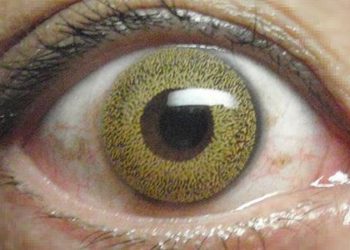Wellness Check: Spirituality
Older adults who lose a child feared life collapse and utilized three main strategies for coping
1. The main concern of older adults after losing their child was fear of life collapse, which can be attributed to contextual factors of double suffering and the inefficiency of government support systems.
2. To cope with the death of a child, participants utilized three strategies including trying to rebuild themselves, connecting to a higher power, and searching for positivity amidst grief.
Evidence Rating Level: 3 (Fair)
Losing a child is devastating and may have a significant negative impact on the physical and psychosocial well-being of parents’ lives. However, the specific concerns and needs that arise in older adults coping with the death of their child have not been adequately explored. This study sought to elucidate concerns and coping strategies in older adults who have experienced the loss of a child.
This was a qualitative grounded theory study of 27 Iranian older adults over the age of 60 who had experienced the death of their child. Face-to-face interviews were conducted between July 2020 and June 2021 and recorded. Themes from recorded interviews were extracted using the Corbin and Strauss methods of open coding/identifying concepts, developing concepts in terms of their properties and dimensions, analyzing data for context, bringing the process into the analysis, and integrating categories. Participants who had cognitive problems or had less than 1 year since their child’s death were excluded.
The results demonstrated that the main concern of older adults after losing their child was a fear of life collapse, which can be attributed to contextual factors of double suffering (additional feelings of anger or frustration with a party involved in their child’s death) and inefficiency of government support systems. To cope with the death of a child, participants utilized three strategies including trying to rebuild themselves, connecting to a higher power, and searching for positivity amidst grief. This study was limited by the participation of fewer fathers in the interview and the relative homogeneity of the religious background of participants (predominantly Muslim). Nonetheless, these results highlight themes that warrant exploration in future studies aimed to help develop better support strategies for adults who have experienced the loss of a child.
Chinese patients with advanced cancer identified 6 themes of important spiritual needs
1. Chinese patients with advanced cancer identified themes such as being treated as normal and independent individuals, receiving and giving love, seeking inner peace, connecting with spiritual sources, finding meaning and purpose, and preparing for death as important spiritual needs.
2. Within the theme of connecting with spiritual sources, the subthemes of important needs include seeking folk beliefs and seeking inner faith.
Evidence Rating Level: 3 (Fair)
Patients facing serious illnesses, such as cancer, often require attention to their physical and psychosocial needs. Research has shown that patients with advanced cancer often have at least one spiritual need. However, what these needs are and how different cultural backgrounds influence and shape these needs have not been adequately explored in the literature. This study aimed to explore the spiritual needs of Chinese patients with advanced cancer.
This was a qualitative study that included 13 Chinese, mandarin-speaking adult patients with stage III or IV cancer. Patients with mental illness or inability to communicate were excluded. The primary outcome was themes of spiritual needs reported by patients and gathered through semi-structured interviews conducted by an oncology nurse and transcribed and reviewed by two separate coders.
The results demonstrated that themes such as being treated as normal and independent individuals, receiving and giving love, seeking inner peace, connecting with spiritual sources, finding meaning and purpose, and preparing for death were all important needs voiced by patients. Within the theme of connecting with spiritual sources, the subthemes of important needs included seeking folk beliefs and seeking inner faith. This study was limited by the small sample size and only focused on hospitalized patients. However, these results highlight both shared and cultural-specific themes of spiritual spirits that healthcare providers and caregivers of patients with advanced cancer should consider.
Ramadan fasting was associated with beneficial changes in metabolic profile.
1. Ramadan fasting appeared to benefit waist circumference, body weight, blood pressure, and fasting blood glucose level.
2. Ramadan fasting was associated with lower low-density lipoprotein and higher high-density lipoprotein, suggesting an overall improved lipid profile.
Evidence Rating Level: 1 (Good)
For people around the world who practice the Islamic faith, Ramadan is a holy month of spiritual reflection, worship, and fasting from all food and drink from sunrise to sunset. How these practices may impact physical health, especially metabolic syndromes, has not been well studied. This study evaluated existing meta-analyses to determine the effect of Ramadan fasting on metabolic parameters.
This was an umbrella review of eleven meta-analysis studies that evaluated the impact of Ramadan fasting and metabolic syndrome. Studies that did not include a meta-analysis or had overlapping datasets from pre-analyses, or meta-analyses of data not found through systematic reviews were excluded. The primary outcomes extracted from each study included waist circumference, body weight, high-density lipoprotein (HDL), low-density lipoprotein (LDL), total cholesterol, triglycerides, systolic blood pressure, diastolic blood pressure, and fasting blood plasma glucose.
The results demonstrated that Ramadan fasting appeared to benefit waist circumference, body weight, blood pressure, and fasting blood glucose level. More specifically, Ramadan fasting was associated with lower low-density lipoprotein and higher high-density lipoprotein, suggesting an overall improved lipid profile. This study was limited by the nature of Umbrella Review studies such as the inability to analyze individual studies in detail as well exclusion of studies not in English. Nonetheless, this study provided a comprehensive review that suggests there are metabolic benefits associated with Ramadan fasting.
Image: PD
©2024 2 Minute Medicine, Inc. All rights reserved. No works may be reproduced without expressed written consent from 2 Minute Medicine, Inc. Inquire about licensing here. No article should be construed as medical advice and is not intended as such by the authors or by 2 Minute Medicine, Inc.



![2MM: AI Roundup- AI Cancer Test, Smarter Hospitals, Faster Drug Discovery, and Mental Health Tech [May 2nd, 2025]](https://www.2minutemedicine.com/wp-content/uploads/2025/05/Untitled-design-350x250.png)




